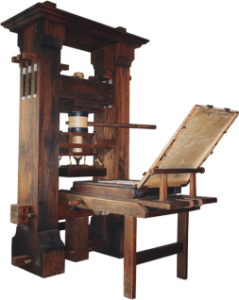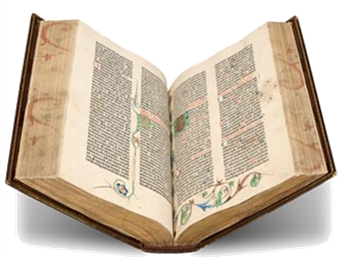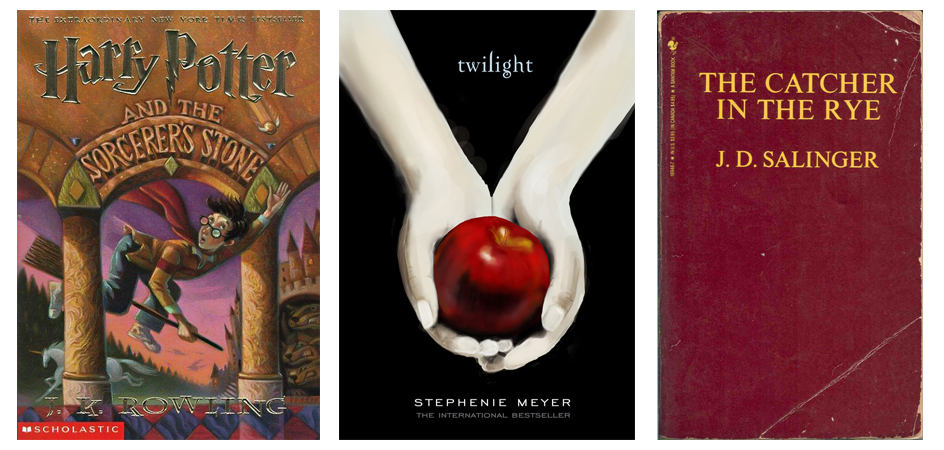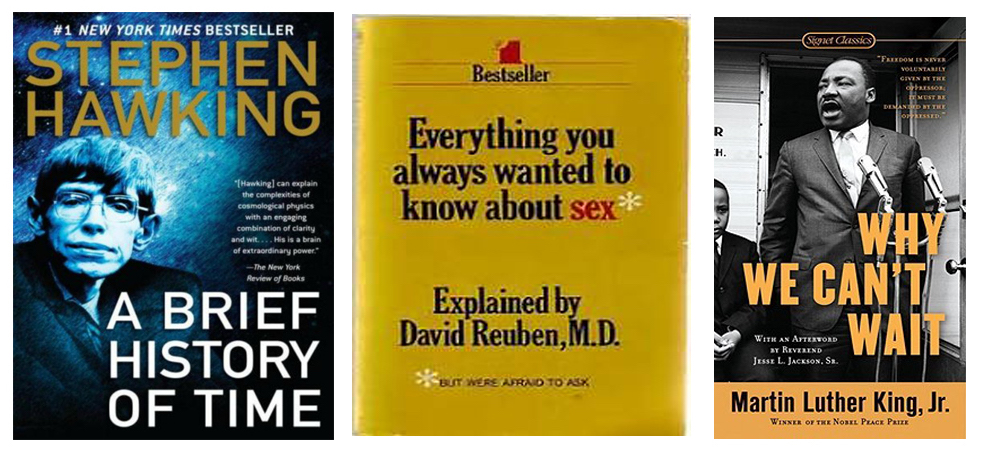Question: What impact did the Gutenberg press have on society?
Answer: A lot. A whole bunch of a lot.
When Gutenberg invented the press in the mid-1400s, it made information accessible to the masses. The technology made sharing uncensored ideas with your neighbors, the village down the road, or even the world, possible.
Before the Gutenberg press, only the rich could afford books and manuscripts. In fact, books were so rare that most churches did NOT have a copy of the Bible under its roof.
According to a web article posted by the University of Texas, it’s estimated you could only find around 30,000 books in all of Europe before the Gutenberg press. Fifty years later, 10 to 12 million books circulated throughout Europe.
Yeah, I’d say the Gutenberg press had an impact.
The first mass publication Gutenberg ran across his press was a very popular book; the Bible. While the Gutenberg Bible was mass produced (180 copies), only the rich could afford these elaborate works.
Even today, only the super rich can afford a Gutenberg Bible. The last one sold was back in 1987. One volume of the Gutenberg Bible sold at auction for over $5 million.
Eventually, Gutenberg’s press made books available for the masses, not just the social elite. Books opened up the world to shopkeepers, blacksmiths and farmers. The poor now had a reason to learn to read. Ideas spread quicker to larger audiences. Monumental!
If knowledge is power, the Gutenberg Press meant knowledge and power were no longer limited to the rich.
Let’s put the Gutenberg press’ impact in perspective…
Imagine growing up not having an adult read you Goodnight Moon, Where the Wild Things Are, or even Pat the Bunny.
Imagine not getting caught up in the drama that filled the lives of Harry Potter, Bella Swan or Holden Caulfield?
Imagine not being able to explore the universe, get a better understanding of what goes on under the sheets or be exposed to political ideals?
The printing press gave so many more people access to information and ideas. That made education and exploration more available for the masses.
Gutenberg’s gizmo changed the world.
So, books represent the first form of mass media. So, how did books influence our society?
Well, based on the New York Public Library’s list of the Top 25 Books that Changed History, books about religion and philosophy had big impact. Their list includes The Analects of Confucius, The Qur’an, The Tao Te Ching, and The Torah, in addition to the King James Bible.
The New York librarians included books about political and social change. Their list includes Bury My Heart at Wounded Knee; an Indian history of the West. Incidents in the Life of a Slave Girl; made pre-Civil War audiences aware of the physical and mental abuse of slaves by slave owners.

Betty Friedan’s The Feminine Mystic; spark the women’s movement, while Silent Spring; a book about the use and misuse of pesticides, started the environmental movement.
George Orwell’s 1984 topped the New York Library’s list. It’s a story of government overreach, surveillance and regimenting the population. The term “Big Brother,” referring to the government keeping constant tabs on all its citizens, originated in this book. Thus the rationale for “Big Brother” being the name of the CBS reality show. (They’re always on camera, being watched by the producers and us.)
Of course, the New York Public Library’s list is just one list. Google “Books that influenced society” and you’ll get millions of results in .44 seconds. Lists of novels that changed the world, lists of books that changed scientific thought, lists of books that inspired change and thousands of other lists.
Your assignment:
Take a look at those lists. Do some research. Ask your friends and family. Take some time to think. Which books had impact? Now go to Blog:Books with Impact and complete the assignment.
While I do love your comments to this blog, if you want points for this assignment post your answers to the correct assignment on Canvas.




